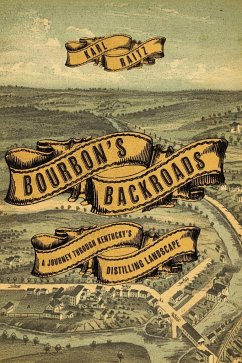With more than fifty distilleries in the state, bourbon is as synonymous with Kentucky as horses and basketball. As one of the commonwealth's signature industries, bourbon distilling has influenced the landscape and heritage of the region for more than two centuries. Blending several topics-tax revenue, railroads, the mechanics of brewing, geography, landscapes, and architecture-this primer and geographical guide presents a detailed history of the development of Kentucky's distilling industry. Nineteenth-century distilling changed from an artisanal craft practiced by farmers and millers to a large-scale mechanized industry that practiced increasingly refined production techniques. Distillers often operated at comparatively remote sites-the "backroads"-to take advantage of water sources or transport access. Some distillers adopted mechanization and the steam engine, forgoing water power-a change that permitted geographical relocation of distilleries away from traditional sites along creeks or at large springs to urban or rural rail-side sites. Based on extensive archival research that includes private paper collections, newspapers, and period documents, this work places the distilling process in its environmental, geographical, and historical context. Bourbon's Backroads reveals the places where bourbon's heritage was made-from old and new distilleries, storage warehouses, railroad yards, and factories where copper fermenting vessels are made-and why the industry continues to thrive.
Hinweis: Dieser Artikel kann nur an eine deutsche Lieferadresse ausgeliefert werden.
Hinweis: Dieser Artikel kann nur an eine deutsche Lieferadresse ausgeliefert werden.








